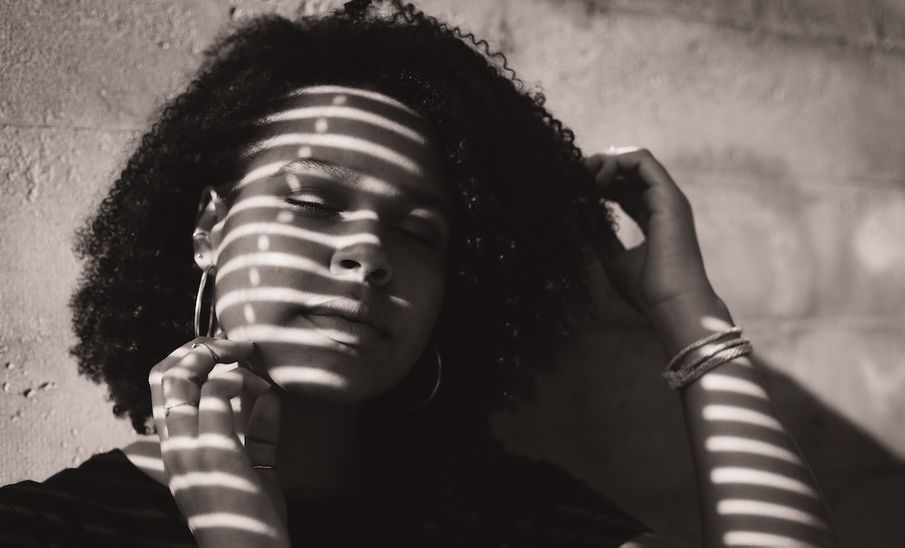When anxiety escalates, we can find ourselves in the midst of a panic attack. Here, we share inside tips on how you can spot your triggers and reclaim control
Having lived with an anxiety disorder for almost a decade, I’ve experimented with various ways to manage the symptoms. Yoga, meditation, and switching to decaf coffee help me maintain a clear head, but sometimes a panic attack will come out of nowhere.
Understandably, some people are so terrified when they have their first panic attack that they end up in the back of an ambulance. But once you’ve had one – or several – it gets easier to sense when one is lurking in the shadows, waiting to pounce.
I don’t have one specific trigger that causes my panic attacks. In fact, the differing circumstances of each one don’t make much sense at first glance. The first panic attack happened on a train, the next one in the middle of a sports massage. Then I began having them when I worked in a sandwich shop (always when I was cutting cucumber for some reason, that was weird), and the most recent one made an appearance on a long-haul flight from Australia.
It was during that last one, suspended in mid-air, when I had the revelation that everything was going to be OK. Now that I’m isolated in a similar way in my little flat, separated from all my loved ones, I’m counting down the days until my next panic attack makes an appearance. But I’m certain I’ll be ready to ride it out. While this is just my personal experience, here are my thoughts on how I’ve learned to live with the unpredictability of panic attacks.

S
1. Accept that it’s happening
By the time my most recent panic attack was in full swing, I was trapped. I was 40,000 feet in the air, stuck between two sleeping passengers, and – let’s be honest – where was I going to go? The toilet was more cramped than my seat, and there was literally no other option, so I had to stay put. I normally deal with panic attacks by going outside for fresh air, but with that solution off the cards, I had a moment of clarity. The only way out was through. I was going to have to endure the ‘peak’ of the panic attack for it to naturally ease off on the other side.
2. Believe that it will end
This inflight epiphany of mine was only possible thanks to my history of panic attacks, so it might be hard for you to truly believe that you’re going to survive. Try (and I know this will feel impossible) to remember that the more you push back against a panic attack, the more intense it will become. Imagine you’re swimming in the sea. Instead of fighting the current, surrender, and let the waves carry you along until calmer waters appear. Most panic attacks last a few minutes.
3. Remember that it won’t kill you
Panic attack symptoms vary from person to person. Common ones include chest pain, nausea, increased heart rate, muscle tension, chills, and a fear of dying. For me, it normally starts with a heightened awareness of my breathing, which leads to shortness of breath. As the feeling intensifies, I break out in a cold sweat – I’m drenched head-to-toe in seconds. When the attack peaks, my vision blurs, my ears ring, I get dizzy, and I normally feel like I’ve blacked out for a moment. It feels like I’m about to die, but panic attacks are not dangerous. It’s simply a misplaced surge of adrenaline, and it will not kill you. Quite the opposite in fact; it’s a normal survival response.
Try (and I know this will feel impossible) to remember that the more you push back against a panic attack, the more intense it will become
4. Distract yourself
During a panic attack, all I want is to be able to catch my breath. But telling myself to ‘breathe deeply’ is a pointless task, because the more I focus on my breathing the more aware I become of every laboured inhale and exhale. No, distracting myself from the breathing always works more effectively. When I was trapped on the plane, I did this by listening to a Sia album. I purposely chose the tracks that I knew all the words to and busied myself by silently lip-synching my way through fear. You can also try reading a magazine, or observing small details around you.
5. Know your triggers
You might want to put your panic attack behind you as soon as it’s over, but I would encourage you to think about the circumstances leading up to the attack itself. You may be able to identify one or several factors that could have triggered it. My train panic attack wasn’t due to travel anxiety, it was stress-related because I was in the middle of relocating to a new city. My work panic attacks were due to lack of sleep. And my mid-flight fiasco? I’d grossly overdone it on the Sauvignon Blanc during my trip. Other triggers include health worries, medication, caffeine, low blood sugar, money worries, social anxiety, or relationship problems.
Like every mental health concern, talking to a professional might help. Visit counselling-directory.org.uk to find out more about the 13,000 counsellors offering online and telephone support.


Comments